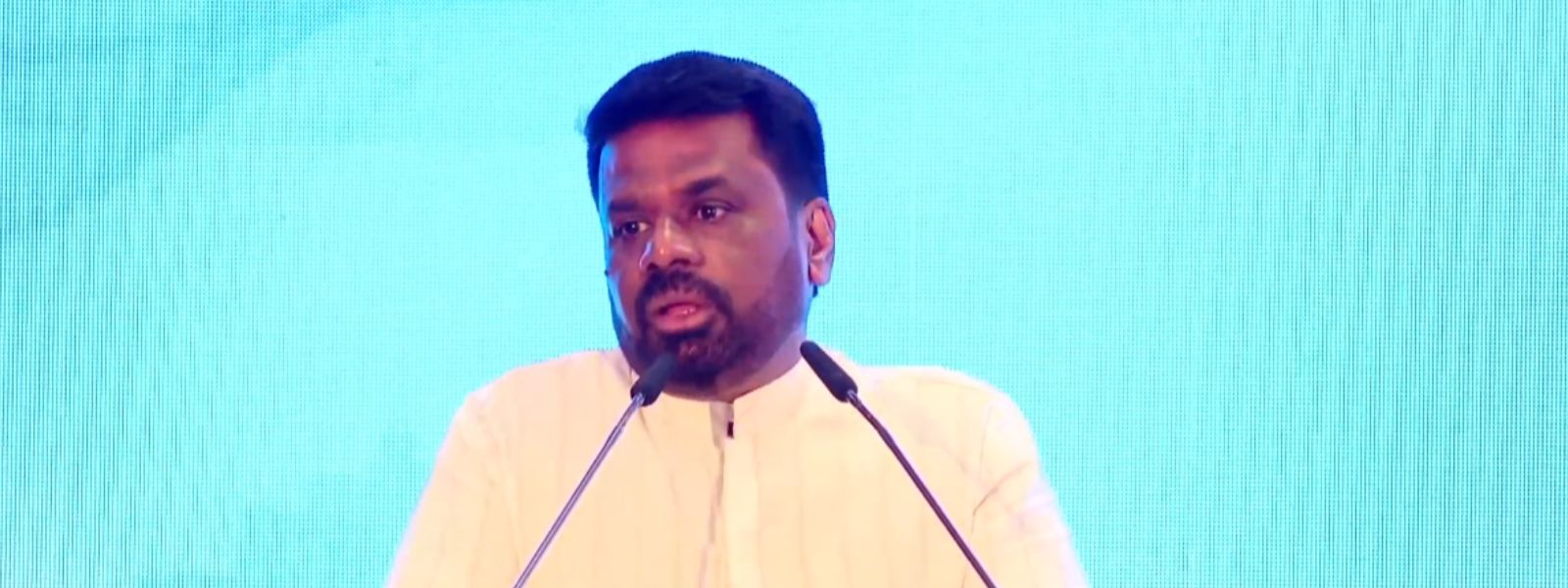.webp)

No More Politicized Welfare: Corruption, Inefficiency Must End - President
COLOMBO (News 1st); Sri Lankan President Anura Kumara Dissanayake stressed on the urgent need to address the structural deficiencies that precipitated the crisis.
Speaking at the “Sri Lanka’s Road to Recovery: Debt and Governance” conference in Colombo, he acknowledged the progress Sri Lanka's economy has made while underscoring the deep-rooted challenges that remain. His remarks outlined a vision for structural reform, institutional accountability, and inclusive growth as the foundation for long-term national stability.
“If we examine the economy, on the surface, we have achieved a degree of stability. However, the underlying wounds that caused the crisis have not yet fully healed,” the President said. “It is important to recognize that the deep-rooted crisis remains unresolved. We believe that overcoming this crisis and establishing lasting stability requires a strong public sector. Yet, the cost of building such a sector is significant. We face the dual challenge of creating a robust public sector while delivering services to the people at a low cost.”
He confirmed that the government has already decided to shut down certain state institutions, many of which were established decades ago under outdated socio-economic conditions. As those conditions have evolved, the relevance of these institutions has come into question. The President also noted that several institutions perform overlapping functions and must be merged, while the goals and objectives of others need to be reassessed.
“To sustain stability, we must strengthen the public service,” he emphasized.
Addressing the systemic issues that have plagued governance, President Dissanayake stated, “Inefficiency, corruption, and bribery have deeply affected the state apparatus and must be eradicated. If you’ve been following the news, you’ll understand our current position. These issues not only delayed essential projects but also led to the implementation of unnecessary ones. We must eliminate both corruption and bribery.”
He reaffirmed the government’s position that a portion of the economy must remain under state control, particularly in sectors like energy and finance, which are vulnerable to monopolies due to their limited market size. However, he stressed that the public should not bear the cost of maintaining these institutions.
“We are committed to protecting this foundation while also enhancing mechanisms to reduce production costs,” he said.
The President also addressed the plight of low-income communities, stating, “We are acutely aware of the low-income groups within Sri Lankan society. We cannot ask them to wait patiently for the benefits of economic reforms. It is our duty to protect them. That is the responsibility of a just government. Therefore, we uphold the principle of providing targeted relief—not politicized welfare. I assure you, we will never implement politically motivated social welfare programs.”
Turning to economic growth, President Dissanayake acknowledged that while targets have been met in several sectors, more needs to be done. “There are areas where we must accelerate progress. First, we need to attract Foreign Direct Investment (FDI). The challenge is that we are doing so not from a position of economic strength, but from a collapsed economy striving for recovery. We must create a conducive environment and offer incentives to attract investment. We have held discussions with the IMF in this regard.”
He posed a critical question: “How do we revive the economy and production?” He emphasized that economic growth and expansion are essential, particularly for rural communities that have long been marginalized and excluded from the economic process. “We believe in implementing programs that integrate these communities into the economy.”
Looking ahead, the President expressed a bold aspiration: “Our objective is to ensure that this Extended Fund Facility with the IMF is the last one Sri Lanka will ever need. By 2028, we aspire to service our debt independently through sustainable growth. Where there is economic collapse, sovereignty cannot be preserved. Whether we like it or not, we have lost a degree of sovereignty. The ultimate goal of our efforts is to reclaim it.”
Other Articles
Featured News





.png )
-794982_550x300.jpg)
-794970_550x300.jpg)





-794314_550x300.jpg)
-794302_550x300.jpg)
-794296_550x300.jpg)
-794290_550x300.jpg)
-792874_550x300.jpg)
















.gif)